Eng. MUTSINDASHYAKA Calls for TVET Curriculum Overhaul to Foster Decent Work in Rwanda
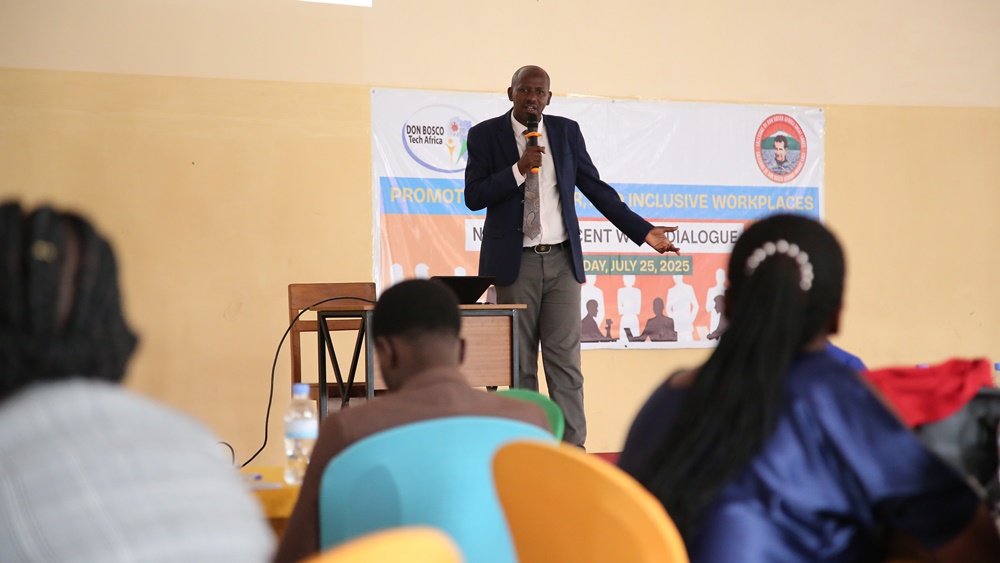
Rwanda’s Technical and Vocational Education and Training (TVET) institutions have been urged to reform their curriculum to match the current demands of the labour market and ensure the promotion of decent work in line with national development strategies.
Eng. Andre MUTSINDASHYAKA, Secretary General of the Rwanda Extractive Industry Workers Union (REWU), delivered this message during a presentation on “Decent Work” at a multi-stakeholder event held on July 25, organized by the Salesians of Don Bosco Rwanda in collaboration with Don Bosco Tech Africa.
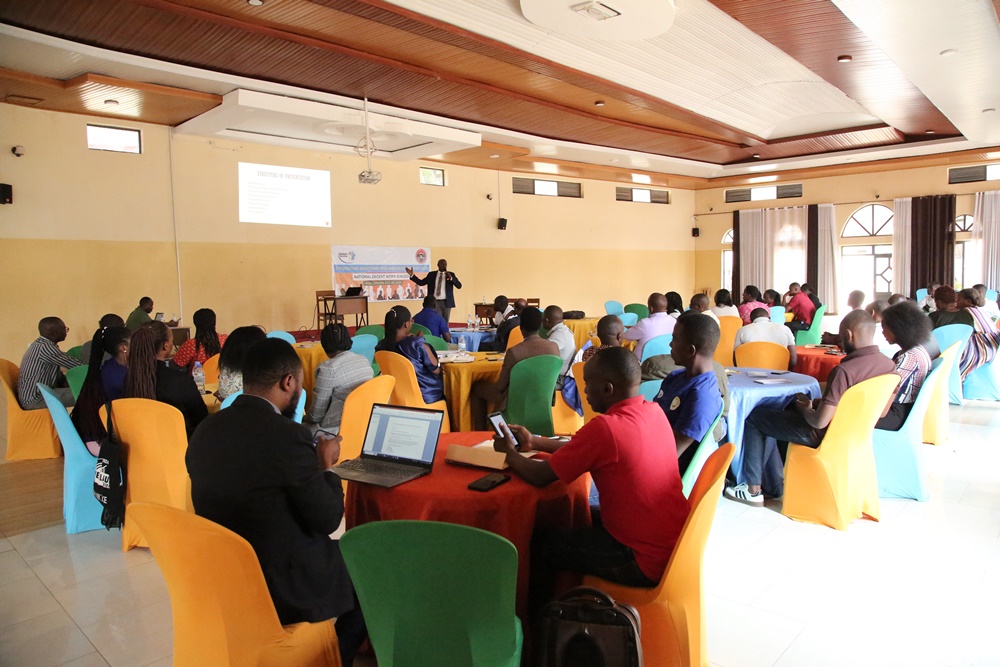
Addressing a diverse audience that included company representatives, TVET educators, media, and Salesian staff, Eng. MUTSINDASHYAKA emphasized that decent work is not only a fundamental human right but also a critical pillar in Rwanda’s National Strategy for Transformation (NST2), aligned with the global Sustainable Development Goals (SDGs).
“Decent work is the second pillar of NST2 and is built upon four key components: social dialogue, labour rights, social protection, and job creation,” he said. “When these are implemented effectively, they benefit both companies and workers—ensuring safe work environments, fair remuneration, and increased productivity.”
He stressed that TVET institutions play a vital role in preparing the future workforce and must adapt to meet the real needs of employers. According to MUTSINDASHYAKA, the current gap between what schools teach and what the labour market requires continues to hinder employment outcomes for young people.
“There’s a visible gap between the labour market and the skills being taught in many TVET schools,” he noted. “If industries are growing but lack a skilled workforce, progress is stalled. We need dual training systems and labour market surveys that inform curriculum development.”
The REWU leader urged schools to engage directly with industries to understand their evolving needs and ensure vocational programs incorporate both technical and soft skills that promote employability, safety, and economic inclusion. He also recommended stronger partnerships to promote social security coverage and long-term savings schemes for workers, in line with Rwanda Social Security Board (RSSB) standards.
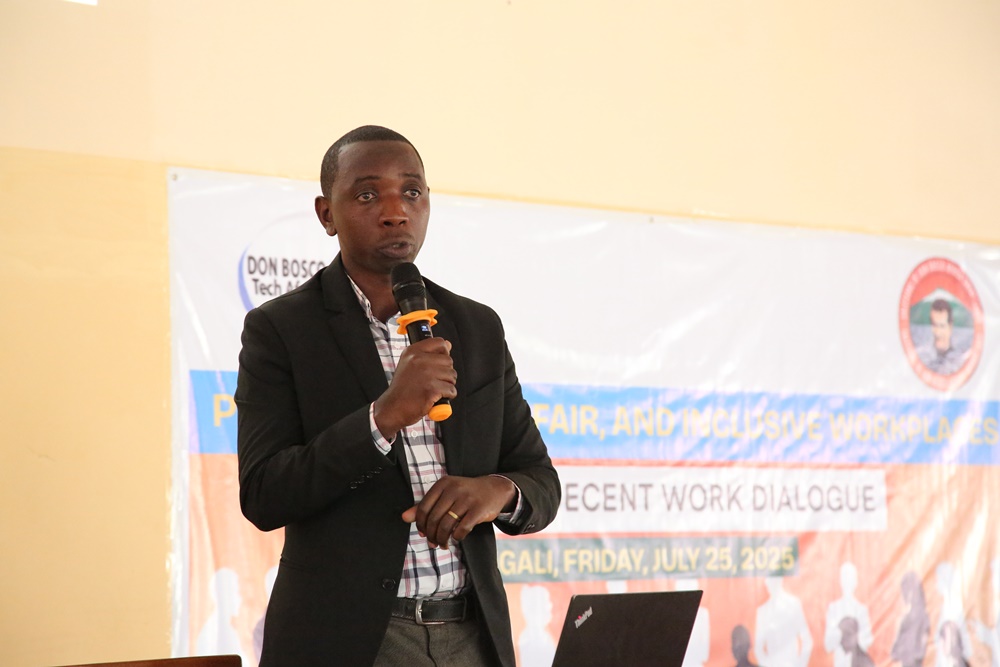
Echoing these concerns, Vincent USABYEYEZU, Consultant Working with Don Bosco, noted that the majority of young Rwandans face unemployment because they are trained in theoretical knowledge that does not reflect the reality of the job market.
“We need to equip youth with practical and service-oriented skills. There’s a mismatch between training and employment needs, and it’s one of the leading causes of youth unemployment,” he said. “Updating curricula and establishing partnerships between training institutions and employers is vital.”
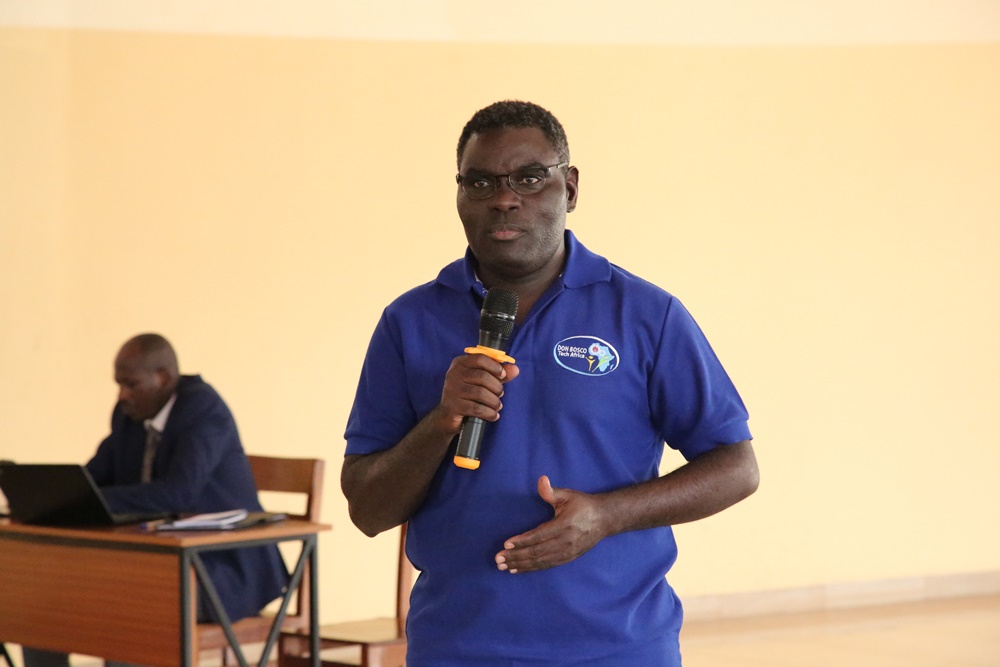
Dominique UWARUGIRA, a Project Officer, pointed out that reform in both ideology and teaching methods is necessary. He emphasized benchmarking against regional peers to raise the quality of education in Rwandan TVET schools.
“We’re not just preparing students to work in Rwanda. They must be competitive across the East African Community (EAC),” he said. “That’s why we conduct study visits to countries like Kenya and Mozambique—to identify best practices and bridge the technical skills gap.”
The event served as a platform to explore how TVET institutions, employers, and policymakers can collaboratively advance Rwanda’s development agenda by fostering a skilled workforce grounded in the principles of decent work. As stakeholders left with renewed calls for cooperation, the message was clear: without better alignment between education and the labour market, efforts to achieve inclusive growth will continue to fall short.
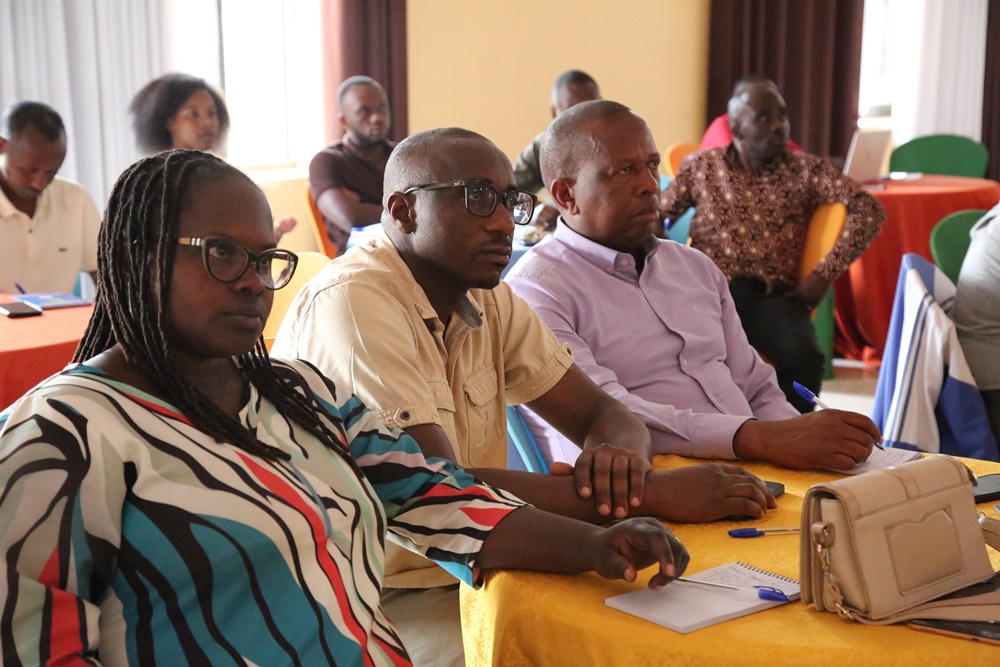
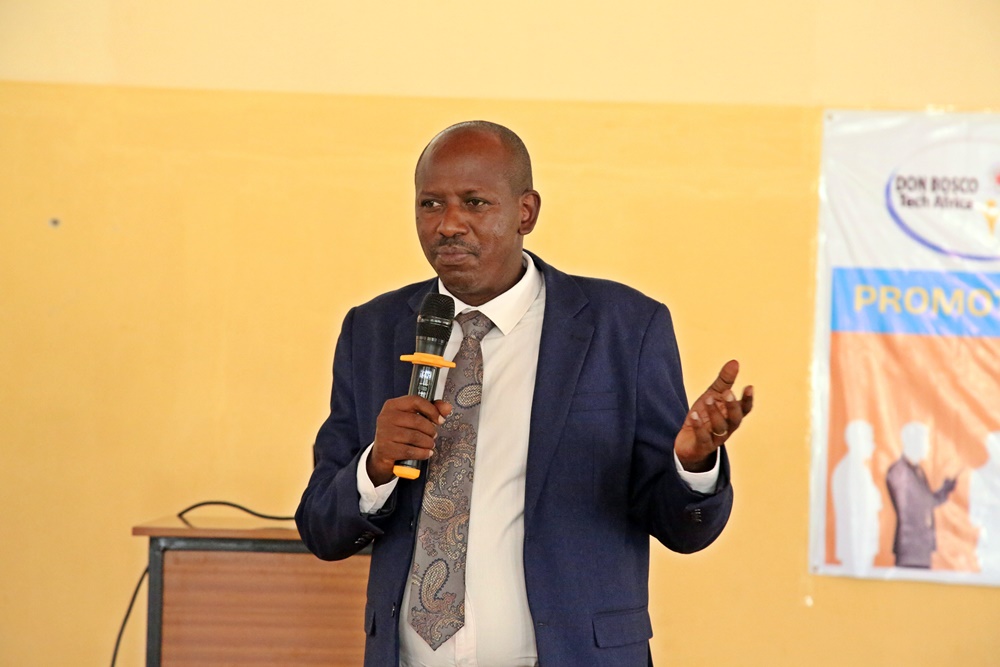
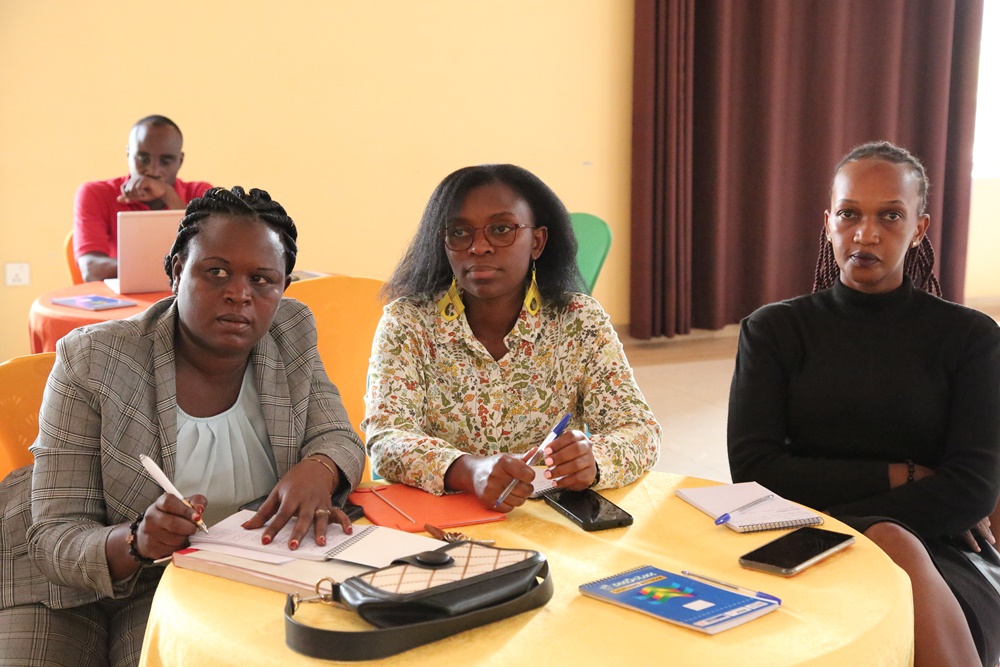
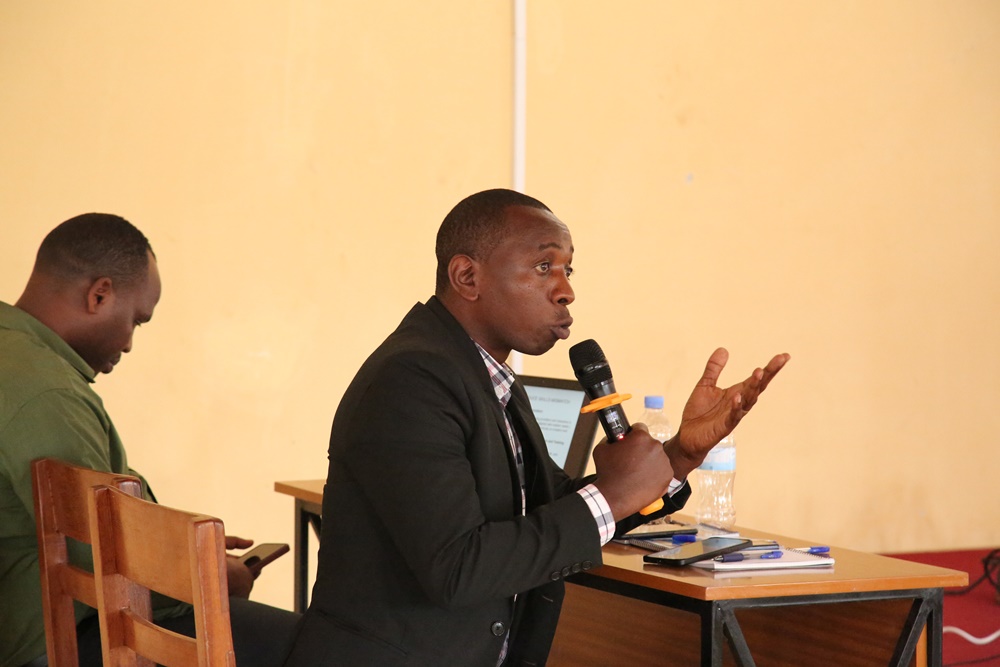
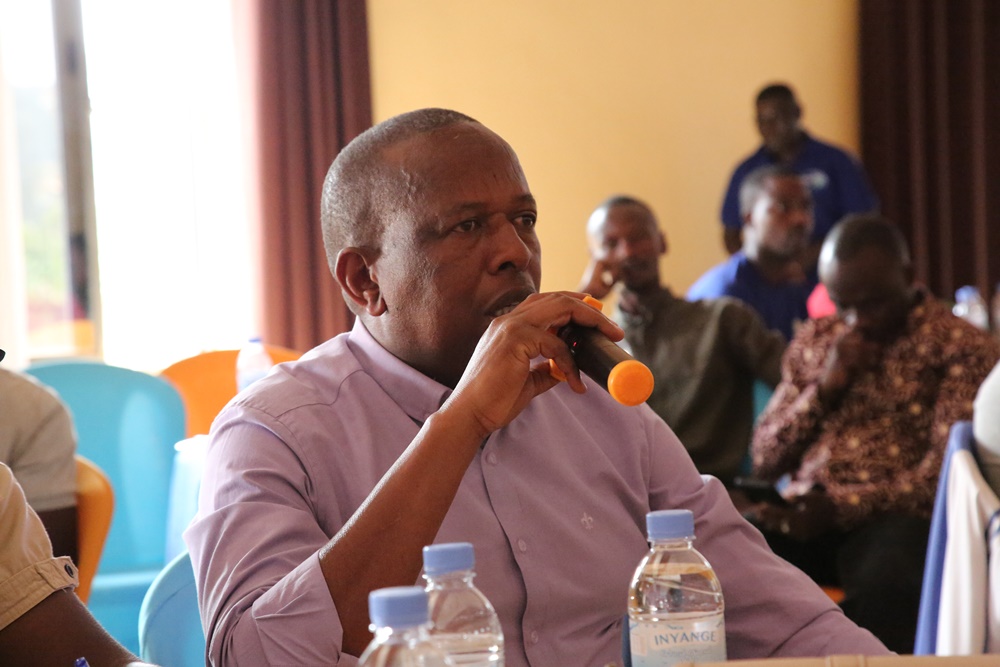
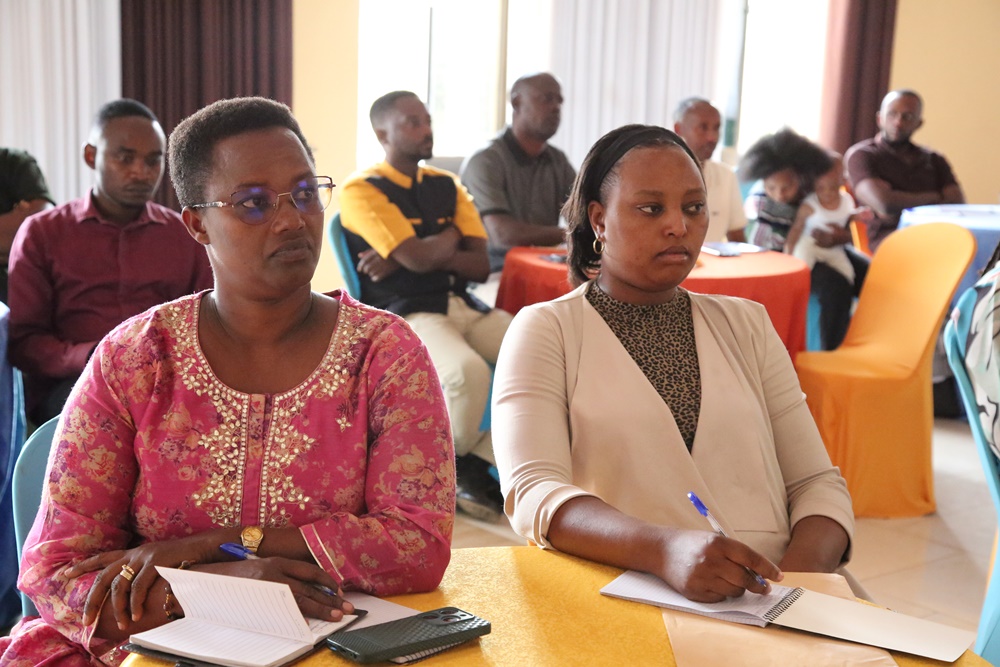

SUBSCRIBE TO OUR NEWSLETTER












